Written by Stephany Wilkes
Photos by Paige Green
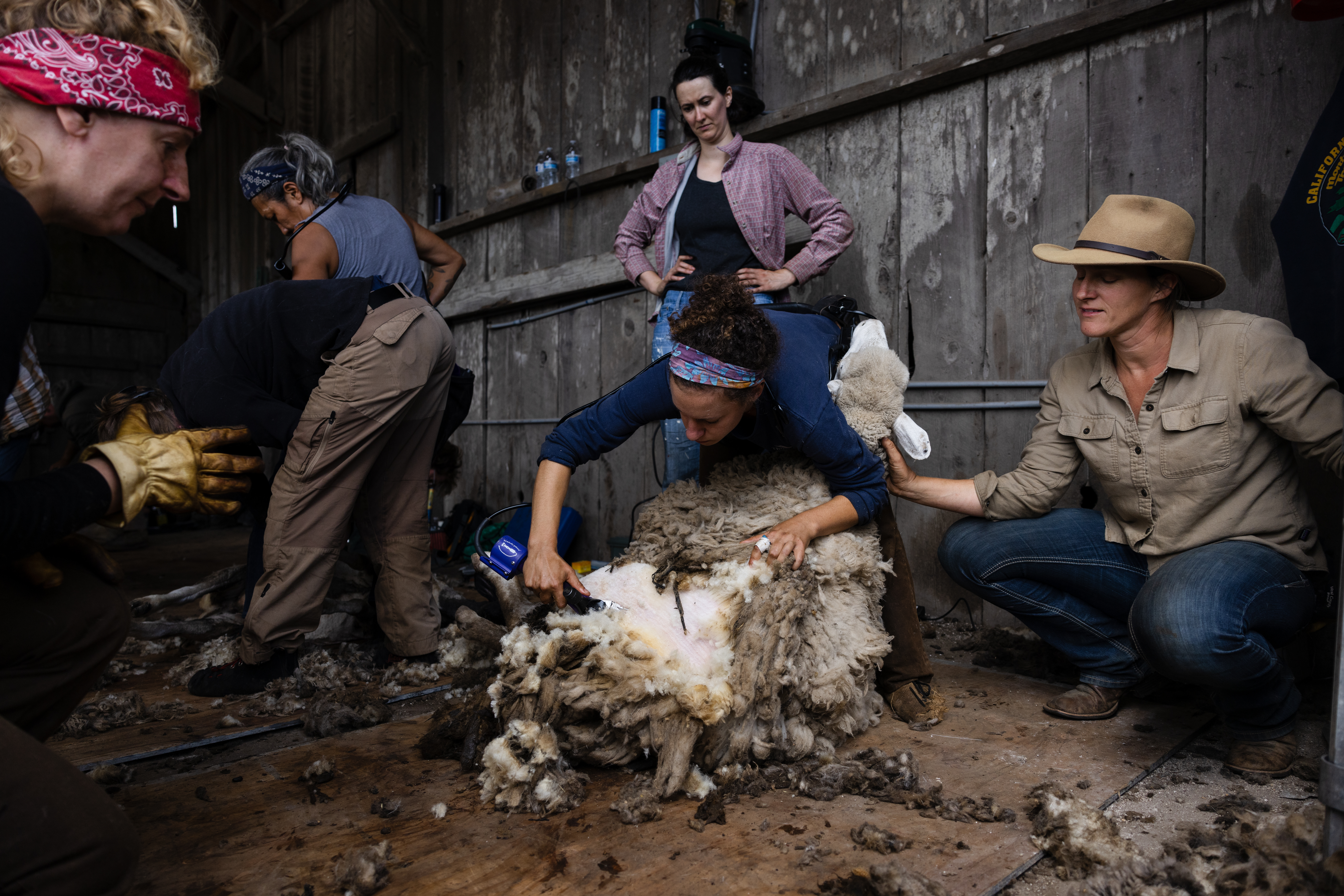
In coastside Davenport, California, Rancho Las Palmas commercially produces certified organic artichokes, brussels sprouts, and peas. Recently, dozens of community members – the stewards of Rancho Las Palmas, employees of the Santa Cruz County Resource Conservation District (RCDSCC), and Fibershed-affiliated contract graziers and sheep shearers – came together to care for the 100 or so sheep of Rancho Las Palmas.

“Healthy sheep make healthier soil,” said Sarah Keiser of Wild Oat Hollow, who helped organize and manage the busy 36 hours of husbandry: shearing, vaccinations, and hoof care. Doing all of these things for nearly 100 sheep in such a short period of time requires weeks of planning, skill, and efficiency. The team at Rancho Las Palmas – especially Maria, Tere, Juve and Rigo Cruz-Diaz – prepared for weeks, purchasing fresh, loose sheep minerals and vaccines, and clearing tractors and equipment from a storage space that would become the shearing area for the day: a flat, covered area open on two sides, with power, ideal for adjacent sheep corrals and a shearing floor. They set up shearing plywoods, first aid kits, extension cords, motor oil, and brooms and rakes to keep the shearing area clean. They hung heavy shearing motors from high beams.
Paigelynn Trotter owns and operates Coastal Land and Livestock, a contract grazing and livestock management service provider. She brought her family, her extensive expertise in low-stress stockmanship, and mobile corral panels in order to build a sheep-holding area and chute adjacent to the shearing floor.
The night before the big day, the shepherds of Rancho Las Palmas, Sarah Keiser, and yours truly moved sheep from the artichoke stubble they grazed into the newly built corrals, with Leche, their trusty livestock guardian dog, beside them for the night. Keeping sheep off of food and water overnight is a critical part of preparation for humane shearing. Sheep have a multi-chambered ruminant system that, when full, carries the equivalent of approximately six fluid gallons of weight. When the sheep are flipped over so their bellies can be sheared, that weight pushes against their diaphragms and makes them feel as if they are suffocating. This discomfort and stress is easily avoided with a brief overnight fast.
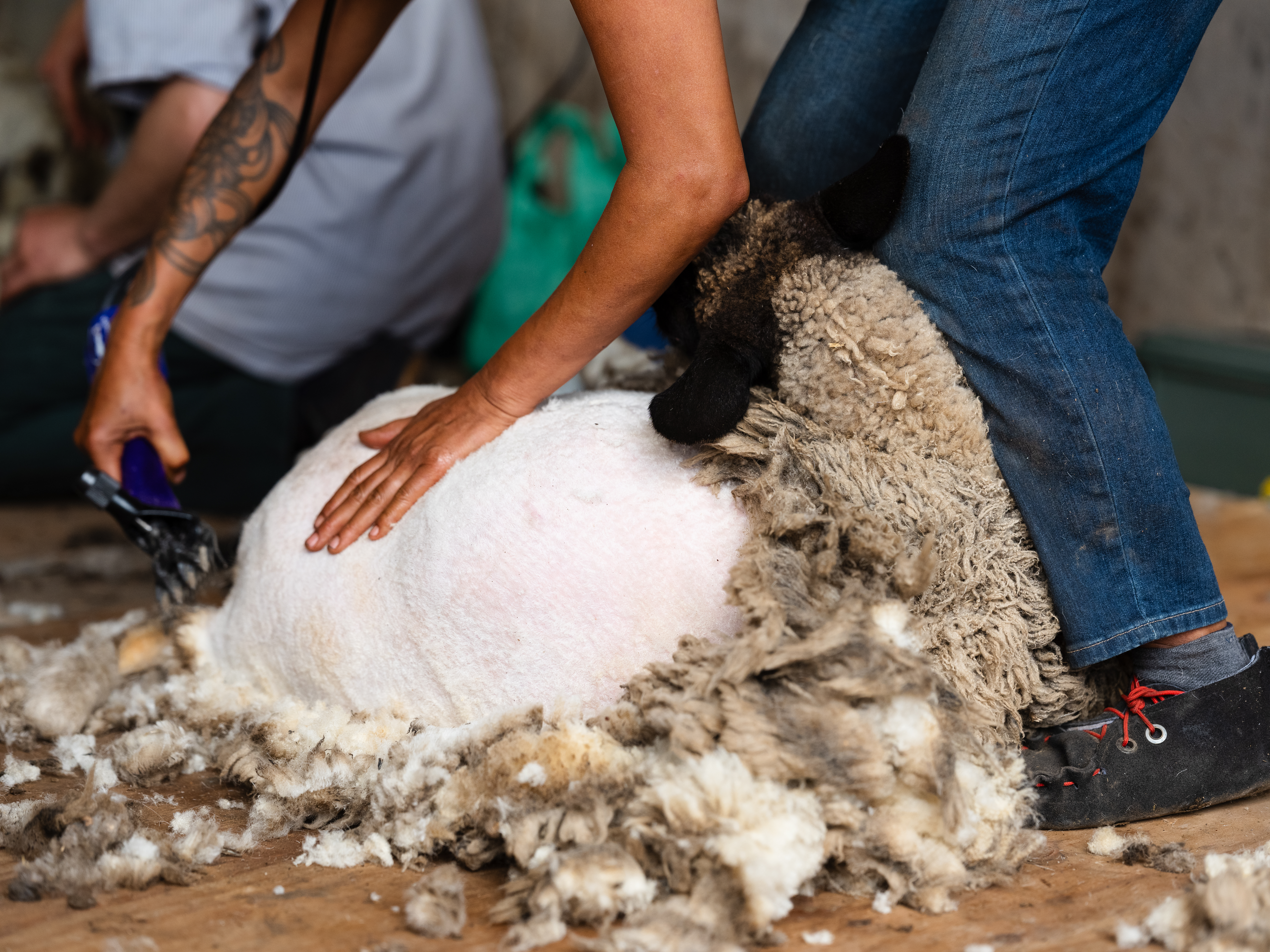
Before dawn the next morning, a bonfire lit the darkness beneath an enormous stock pot: lunch preparations had begun. Rancho Las Palmas provided lunch for all, including sheep birria, carnitas, consome, fried rice, beans, tortillas, salads, artichokes, and more.
Headlights lit the foggy driveway as six sheep shearers arrived and set up at Rancho Las Palmas. Alex Goforth, Jessie Kanter, Stephanie Reed, Sirima Sataman, Sequoia Williams, and Saill White all completed one of two local shearing schools in 2023, at either the University of California Cooperative Extension (UCCE) Mendocino & Lake Shearing School in Ukiah, or the Fibershed-sponsored shearing school at the University of California Hopland Research and Extension Center in Hopland, California. Rancho Las Palmas generously shared their ranch and entrusted their sheep to newly certified shearers, eager to gain more hands-on shearing and hoof trimming experience in an apprentice-style, instructor-supported environment.
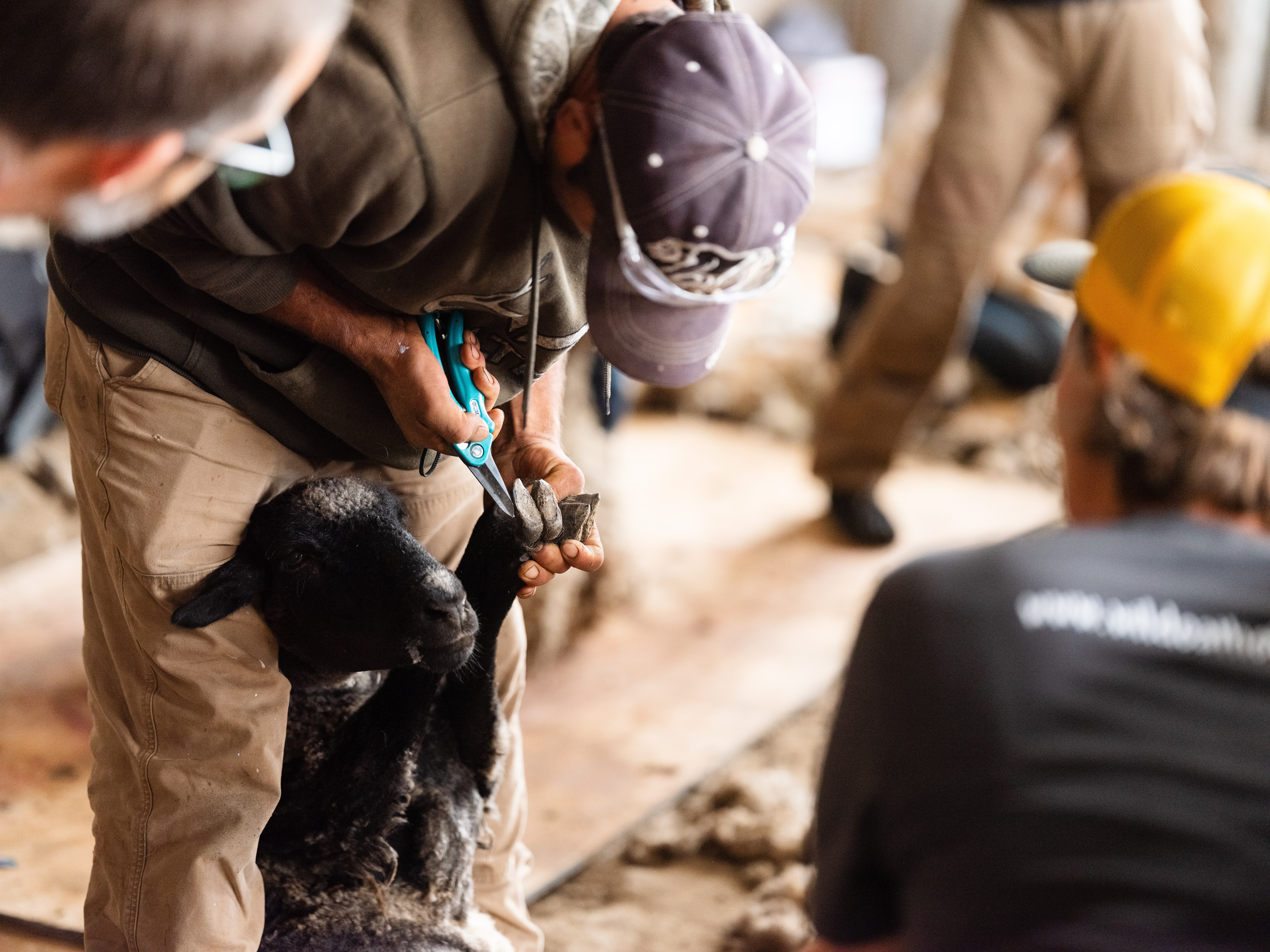
Over a delicious lunch, Paigelynn shared educational handouts and led a conversation about the effects of stress on production and best practices for handling and herding sheep. Sacha Lozano of the Santa Cruz RCD provided Spanish translation to create a bilingual workshop.
Livestock can play an important role in crop systems, and crop farms that have them are commonly referred to as integrated-crop livestock systems. Rancho Las Palmas doesn’t have a commercial use for the 100 or so sheep they keep, but the animals are fully integrated in the soil and crop residue management strategy the farmers apply on this piece of land. Through rotational grazing, the sheep contribute to nutrient cycling and soil health improvement. They deposit manure, which reduces the use of petroleum-based, synthetic fertilizers and provides plant-available nutrients (i.e. nutrients in a form that crops can use more easily). Manure also adds microbes to the soil. This builds a more resilient soil ecosystem by helping with nutrient cycling and encouraging more soil and plant biodiversity.
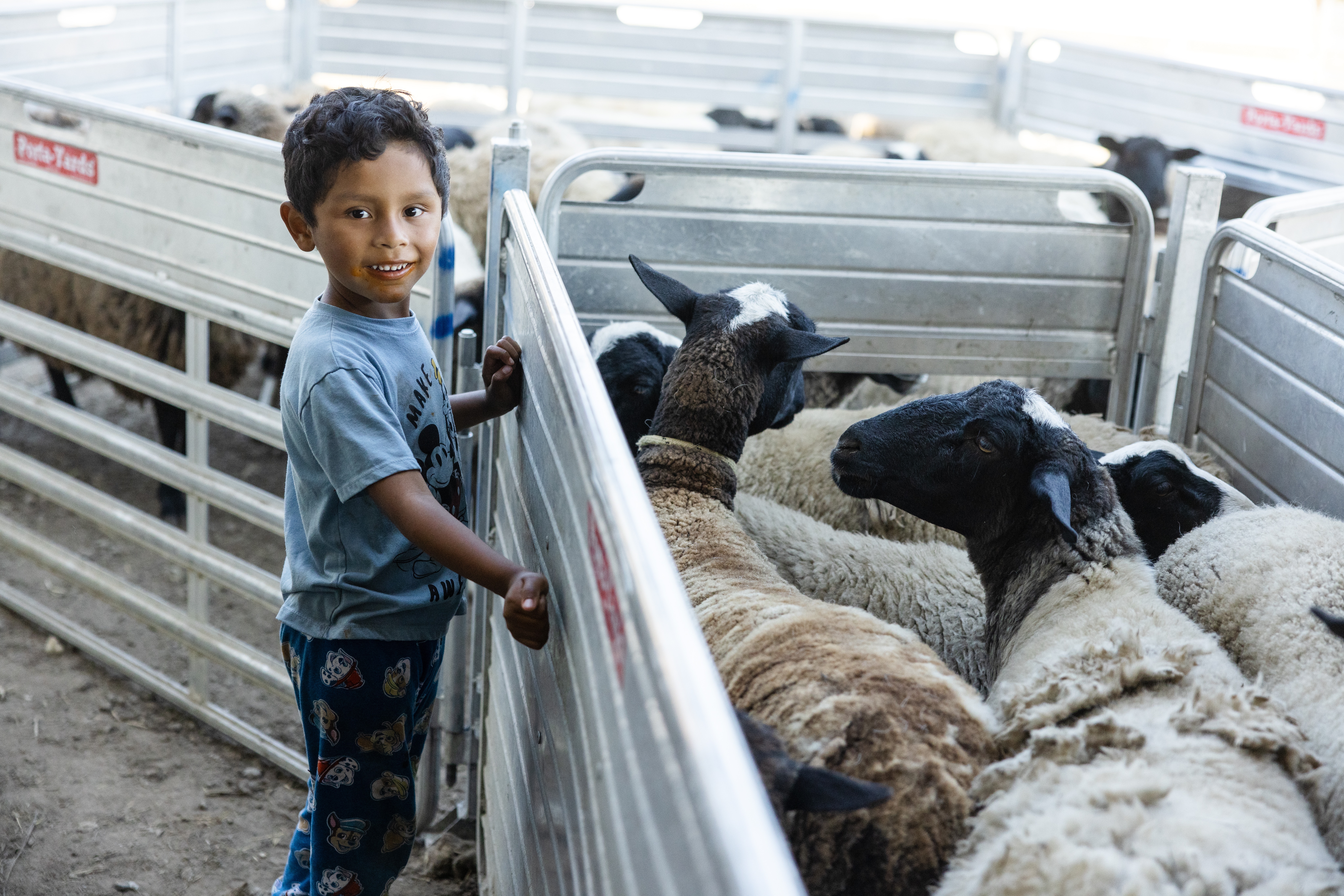
The sheep provide yet another key benefit: soil carbon sequestration, which is affected by a few different mechanisms in combination. First, sheep grazing down crop stubble and weeds – diminishing the tops – increases the resources that plants allocate to roots. As the work of Kelsey Brewer and Amelie Gaudin (2020) has demonstrated, grazing increases root biomass and thus the amount of carbon stored below ground. Grazing also stimulates crop roots to release sugars – plant exudates – made up of carbon from the atmosphere into the surrounding soil, sequestering carbon and feeding soil microbes.
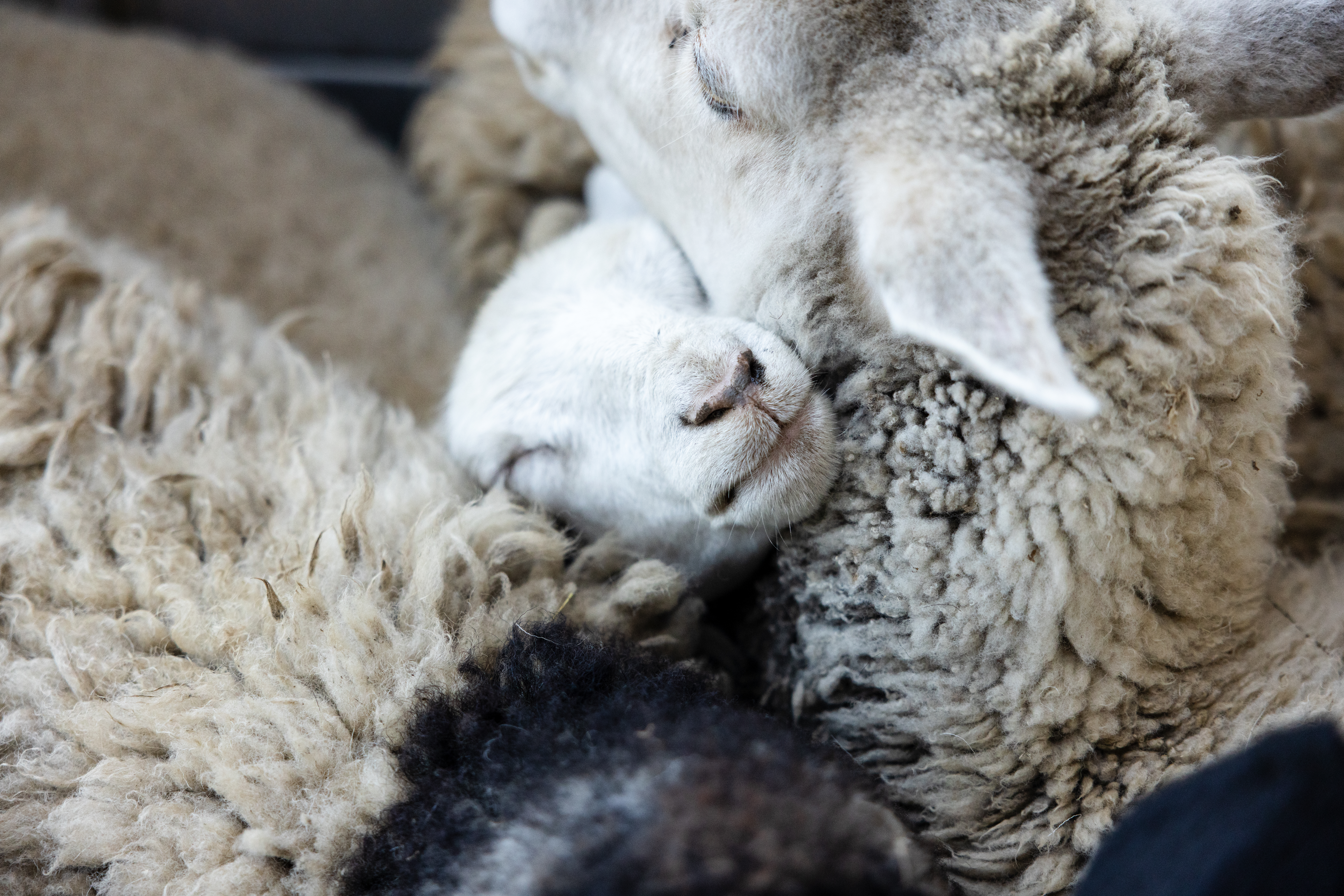
Despite its multiple potential benefits, animal integration in annual cropland systems is not common on the central coast, partly because of concerns related to food safety (which can be addressed with adequate management and planning), and partly because of a lack of knowledge or experience on how to make this type of integration work. Rancho Las Palmas is a pioneer in this type of integrative land management on the central coast, and there is much we can learn from their experience. This is one of many reasons why the RCD of Santa Cruz County is actively working with these producers to help advance and learn from Rancho Las Palmas’s practices and help Maria, Tere, Juvenal and Rigo to connect with technical and financial resources that can expand their knowledge and management capacity.
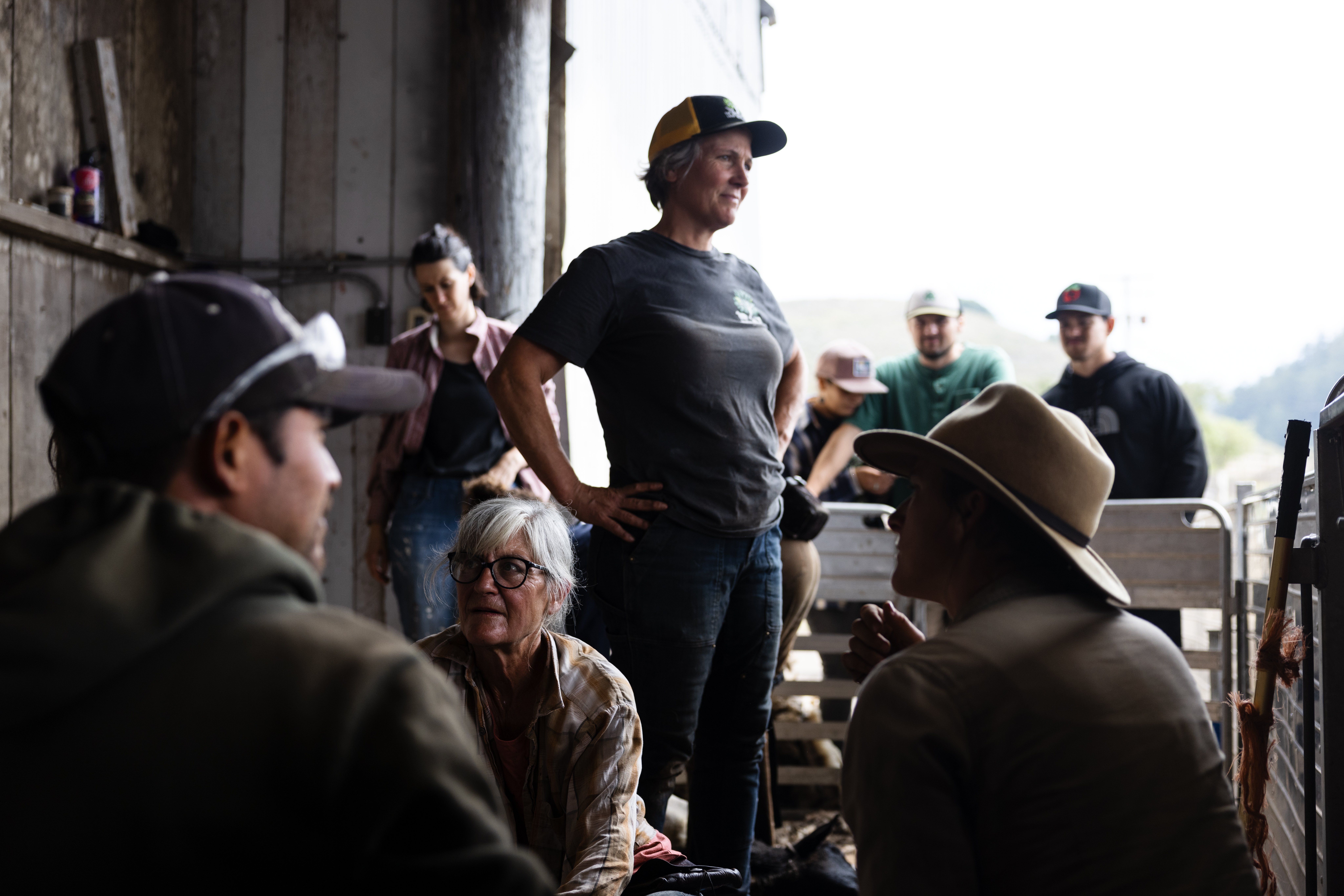
The sheep, their shearers, and the whole team hung in and worked together for a long, yet magical, 12-hour day with some heavy, well-fed sheep. Every person present showed dedication, skill, care, and willingness to care for the sheep who help care for the land.
Fibershed is happy to coordinate husbandry days like this between community organizations and Fibershed producer members. For more information, contact Lexi Fujii at lexi@fibershed.org. Follow the inspiring stewardship of Rancho Las Palmas on Instagram @rancho_las_palmas_.
